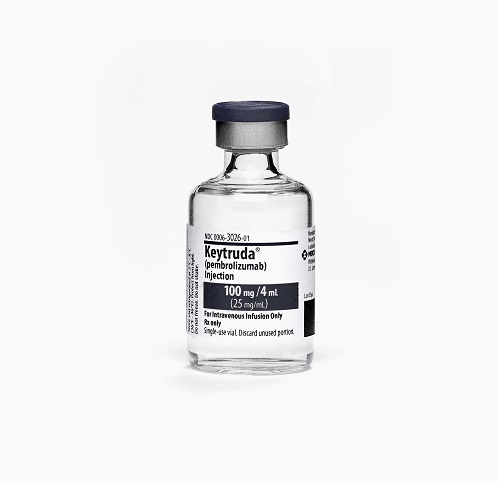
GlaxoSmithKline (GSK) and Merck are evaluating a potential treatment for patients with locally advanced, recurrent or metastatic solid tumours.
A Phase I trial has been started to evaluate the combination of GSK’s GSK3174998 with Merck’s anti-PD-1 therapy Keytruda (pembrolizumab) in tumour patients.

Discover B2B Marketing That Performs
Combine business intelligence and editorial excellence to reach engaged professionals across 36 leading media platforms.
GSKJ3174998 is a humanised IgG1 anti-OX40 monoclonal antibody, discovered via collaboration with MD Anderson Cancer Center.
OX40 is a tumour necrosis factor receptor, identified on the surface of activated CD4+ and CD8+ T cells.
GSK Oncology R&D vice-president Axel Hoos said: "There have been meaningful advances in survival across several cancers recently, mostly based on single-agent checkpoint modulatory drugs.
"The combination study of Keytruda with GSK’s OX40 agonist will seek to build on that progress with the aim of contributing further improvements for patients.

US Tariffs are shifting - will you react or anticipate?
Don’t let policy changes catch you off guard. Stay proactive with real-time data and expert analysis.
By GlobalData"We think combining these two agents that use different aspects of the immune system may be an important step toward achieving this goal."
The OX40 agonism stimulates the immune system and reduces the immunosuppressive effects of regulatory T cells sometimes identified in tumours.
Keytruda is a humanised monoclonal antibody that increases the immune system’s ability to fight tumour cells by blocking interaction between PD-1 and its ligands PD-L1 and PD-L2.
It activates T lymphocytes, which may affect both tumour cells and healthy cells.
Merck Research Laboratories vice-president Eric Rubin said: "The initiation of this Phase I trial with GSK is an important step in identifying synergistic treatment combinations that can potentially enhance the activity we are seeing with Keytruda as a monotherapy.
"We are looking forward to this trial progressing and to sharing the findings on the potential of the combination of Keytruda and GSK’s GSK3174998 in bringing forward improved outcomes for patients with advanced cancer."
In the US, Keytruda is indicated at a dose of 2mg/kg, and administered as an intravenous infusion every three weeks.
This treatment is for patients with metastatic non-small cell lung cancer (NSCLC), whose tumours express PD-L1 after an FDA-approved test.
Image: Merck’s Keytruda increases the ability of the body’s immune system to fight tumour cells. Photo: courtesy of Merck & Co.





